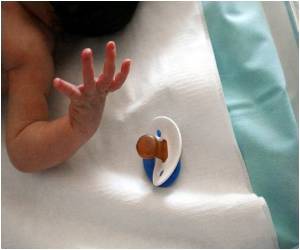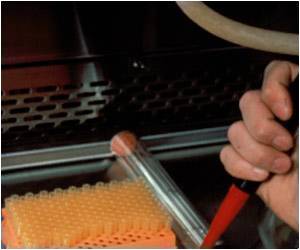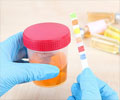A set of proteins detected in urine by researchers may prove to be the first biomarkers for Kawasaki disease.

The discovery was reported online by a team led by members of the Proteomics Center and the departments of Pathology and Rheumatology at Boston Children's on Dec. 20 in the journal EMBO Molecular Medicine.
While only about two in 10,000 children in the United States develop Kawasaki disease annually, the disease is on the rise both here and worldwide; in Japan the prevalence approaches one in 100 among children under the age of 5. No one knows what triggers the disease, and though it can occur at any age, it most often appears in children under 5.
Kawasaki disease is highly treatable—approximately 80 percent of children diagnosed with it require only one round of treatment—but making a diagnosis is often a significant challenge. And if it is not detected early, Kawasaki disease can have serious consequences: About 25 percent of children with untreated Kawasaki disease develop coronary artery aneurysms.
"The symptoms of Kawasaki disease, including fever, rash and enlarged lymph nodes, mimic those found in many common viral or bacterial infections in children," said Susan Kim, MD, MMSc, a rheumatologist with the Kawasaki Disease Program at Boston Children's. "The process of diagnosis includes considering a long list of possibilities. Especially in children with an incomplete presentation, a diagnosis of Kawasaki can be delayed or even missed.
"We'd like to have a test that we can use to proactively distinguish children with Kawasaki disease from those with other causes of fever," she continued. "This would allow us to start treatment much earlier and greatly reduce the risks of long-term complications."
Advertisement
The team identified 190 proteins found only in the urine of children with Kawasaki disease. When validated in samples from 107 children seen at Boston Children's with suspected Kawasaki disease (53 of whom were ultimately diagnosed with it), two of the proteins—filamin C and meprin A, which are associated with injury to blood vessel and cardiac muscle cells as well as inflammation—proved to be 98 percent accurate at distinguishing children with Kawasaki disease from ones with conditions mimicking the disease. Levels of the markers also closely tracked treatment response and, in one patient, disease recurrence.
Advertisement
The researchers caution that for the moment the markers are still research tools and that they are working to refine and validate the findings in a larger group of patients. "We are working with the hospital's Technology Innovation and Development Office to find corporate partners with which to develop a clinical-grade test," said Steen, who directs the Proteomics Center.
"This is very exciting and our results are very promising," said Kim. "Of course we need to validate the results in a broader cohort of patients, ideally in collaboration with other centers. We are hopeful that these findings will help us to develop a test that can help specifically and proactively detect or rule out Kawasaki in suspected patients in the future."
Source-Eurekalert













